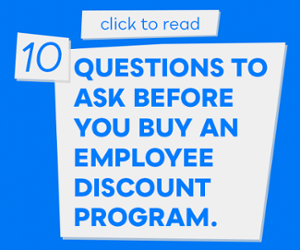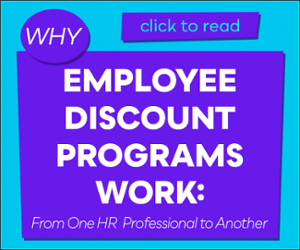We recently introduced an ebook all about managing Millennials. The whole concept is that this generation is different, but they need to be managed in the same ways every employee should be managed.
That is, they should have opportunities to learn, lead, fail and succeed. They want to be treated as adults, and not necessarily tied to a cubicle for nine hours a day. Salary is important to them, but so are benefits and corporate perks.
These aren't anything new.
One suggestion we had for organizations is to create a path for every employee. A path that could lead as high as they want to go - even as high as CEO.
It’s the ultimate Horatio Alger story, right?
A kid goes from the mailroom to the boardroom. Or from flipping burgers to running the entire company.
George Bodenheimer, former ESPN president, started his career in the mailroom of the company. Virgin Atlantic CEO Dan Borghetti also toiled in the Qantas mailroom before rising to the top. GM CEO Mary Barra started working for the company at age 18 as a co-op student.
It’s the idealized American dream. Anyone can find fame and fortune, if they’re willing to put in the effort.
But could something like that happen in your organization? Could the kid at the bottom evolve into the CEO?
Could she be your boss one day?
Career Progression and Employee Retention
First, let’s clarify that upward trajectory and professional development is important to people. From our gigantic collection of employee engagement statistics:
- 54% of employees said career advancement opportunities are more important than salary when looking for work (Achievers)
- 34% of employees say career advancement opportunities would increase their engagement and loyalty (Workforce 2020)
- 22% of employees who are not getting promoted look to other companies for opportunities to advance their careers (BambooHR)
From the same collection, there’s clear evidence that this is crazy important to Millennials.
- Most important factors in Millennial workplace selection: career advancement, salary, benefits, work-life balance and job security (Boston College)
- 82% of millennials say promotions are important in choosing a job (Bentley University)
- Only 26% of Millennials feel their employers are actually invested in their professional development (EdAssist)
What if every employee took pride in surpassing expectations in their role, whether that role was scrubbing toilets or leading the entire organization? If you can see a reward for doing great work, wouldn’t you try to do great work, whatever that might entail?
Building out a path of career development can pay off in major ways for your organization. Highly engaged employees lead to highly engaged customers. And highly engaged customers are what separates superstar companies from everyone else.
On the flipside, employees without any hope of advancement may bail, or even worse, completely disengage.
- 22% of employees who are not getting promoted look to other companies for opportunities to advance their careers (BambooHR)
- 41% of employees said they would need to leave their current employer in order to advance their careers (Towers Watson)
- 26% of Millennials feel like job hopping is the best way to advance their careers (Boston College)
- The top sources of work stress are low salaries (according to 51%) and lack of opportunity for growth and advancement (44%) (American Psychological Association)
Employee turnover has a high cost. In real terms, it’s somewhere around 150% of an employee’s salary. In terrifying terms, consistent turnover snowballs into perpetual disengagement. Toxic environments can shutter a business.
Here’s How to Make it Happen.
This isn’t exactly about going from the mailroom to the CEO. That’s a rare example, obviously.
This is about growth and opportunities. It’s about identifying and building strengths that benefit the company. It’s about building the person as much as the employee.
Don’t create a document with checkboxes that says “You can become the CEO when you do this, this, this, and this.”
Instead, concentrate on showing the mailroom kid how their role is important. Help them see the bigger picture, so that they might recognize the opportunities that exist for them without bailing.
Many employees are brought into entry-level jobs in which the entry-levelness is overemphasized. But many of those jobs are important. Often, the lowest-paid employees have the most direct contact with customers.
If they don’t play an important role, why does their position exist?
Every job is important, and every employee needs to know that they’re important. How else do you expect them to invest their best efforts?
Simultaneously, help each employee identify what they’re good at, and give them training to make them exceptional at it.
Recent studies have shown that mastery of a skill builds devotion to a role. As Cal Newport and Seth Godin have each pointed out, “follow your passion” isn’t great career advice. Passion follows mastery and skill, so build on strengths.
(At Access, we do this in part with aid from Tom Rath’s Strengthsfinder 2.0)
Then, show them the path forward.
That might be a promotion, but it doesn’t have to be. It could be increased responsibilities in their current role. It could be increased freedom, more ownership of that role.
Don’t be afraid to work outside the boundaries of the organizational chart. If someone shows exceptional ability, but there are no management positions available, get creative. Consider an intrapreneuring program that provides the chance to show ownership of new ideas.
An Organization that Appeals to a Higher Class of Employee
Not every employee will take the bait. Some are content to show up, do their jobs, and go home to play video games.
As your organization invests more in itself, you’ll develop a culture that people want to be a part of.
A higher caliber of prospect will apply for the bottom rung, because you’ll help them become exceptional. Employees will stay for years. Not in hopes of becoming the CEO, but because they’ll be rewarded for utilizing their developed skills to solve problems.
Customers will want to be part of it as well, boosting your bottom line.
What more could anyone ask for?
Maybe the kid in your mailroom isn’t the next CEO. But there’s a chance she’s the next something in your organization. It’s up to you to help them know their importance to the company, and that you’ll make sure they’re able to maintain that importance for years to come.




